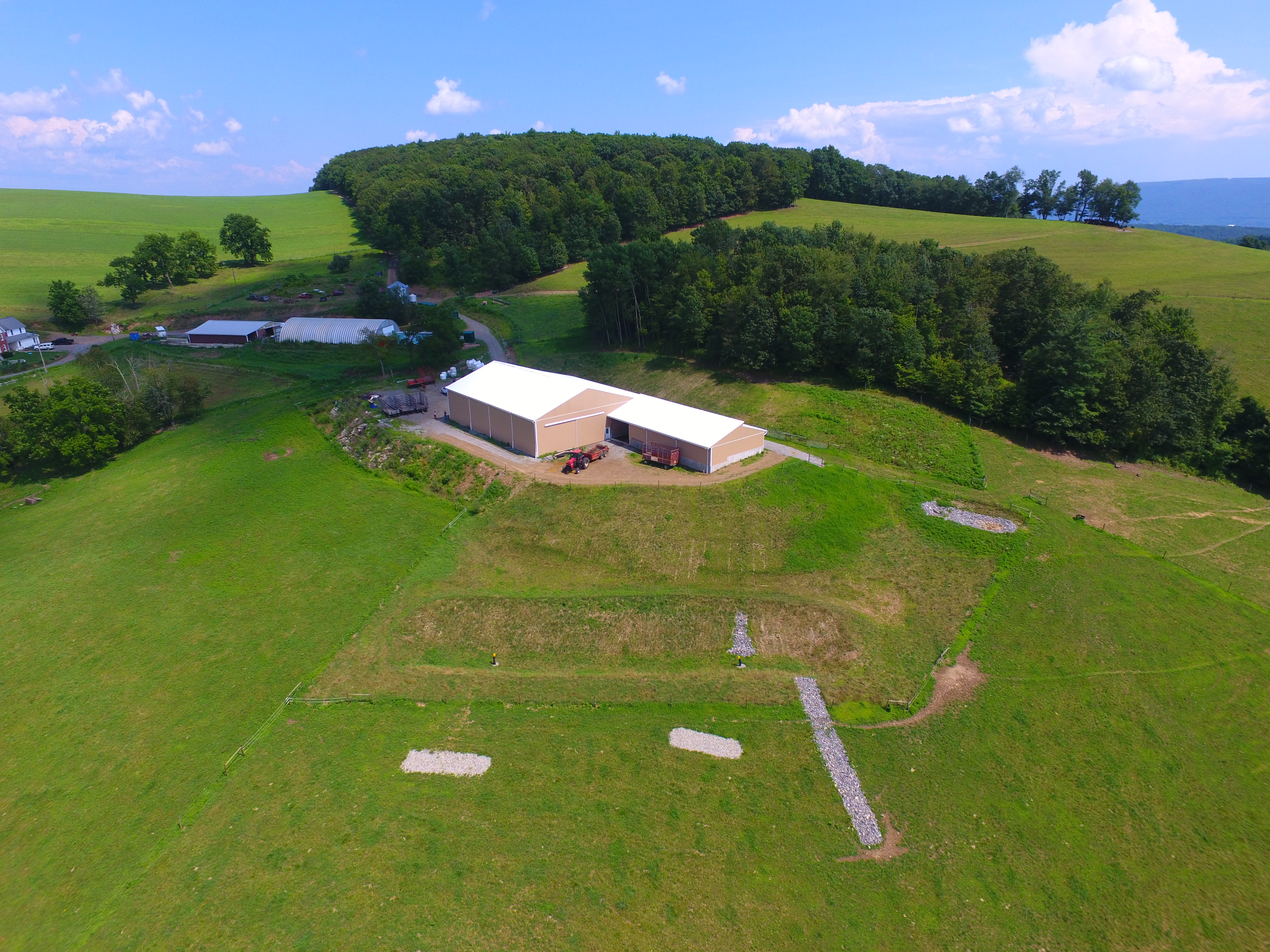Funding from the Environmental Stewardship Fund enabled the Lycoming County Conservation District (LCCD) to implement a number of agricultural best management practices (BMPs) that drastically reduced the amount of polluted water flowing from a local farm into nearby waterways.
The heaviest-used area of the farm—a steep hillside where the herd of cows congregated—caused most of this pollution. The animal traffic prevented vegetation from growing, eroding the hillside and increasing the amount of stormwater runoff polluting nearby waterways with sediment and manure (an outdoor manure storage area also contributed to this problem). In addition to making water unsafe for humans and destroying aquatic-wildlife habitat, this runoff cut deep ditches throughout the property.
LCCD worked with the farmer to implement several BMPs to fix these issues:
- A barn to house the cows during the winter months so they would not destroy the hillside, with pipes that channel water from the roof into a stormwater pond.
- Native vegetation planted on the hillside to hold the soil in place and absorb stormwater.
- Rock-lined waterways to stabilize the eroding ditches and carry runoff into a control basin.
- An animal walkway to allow cows to move between the barn and pasture without destroying vegetation on other areas of the farm.
- A weatherproof manure-storage facility, preventing manure from washing away during storms.
These improvements have prevented over 700 pounds of nitrogen, 10 pounds of phosphorus, and 12,000 pounds of sediment from flowing into nearby waterways—and eventually, the Chesapeake Bay—each year.





